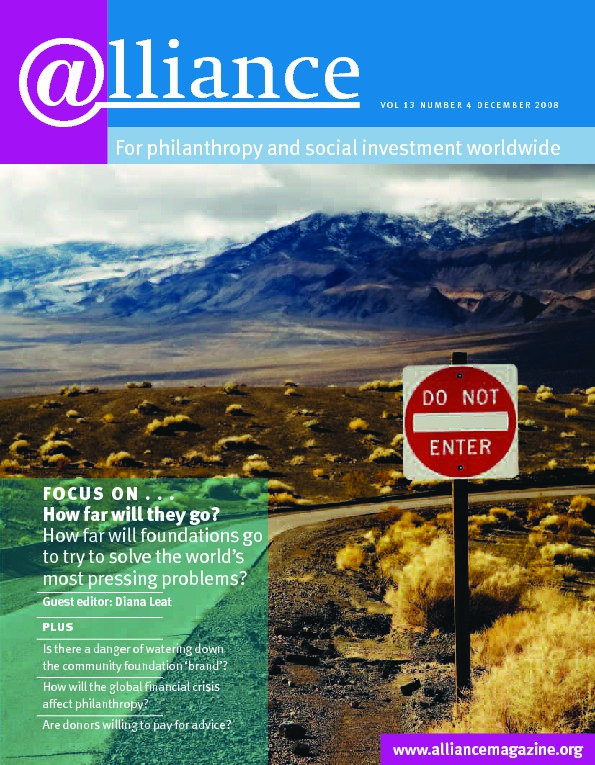When history looks back on the philanthropic world in the first decade of the 21st century, I suspect it will define us in basic ways. It will record that during this time philanthropy grew in size, service and scrutiny. Of these three, I think the most dramatic change will have been the growth in scrutiny.
While Rick Cohen’s call to accountability is appropriate, it is hardly new; in fact, it has always been with us. And it is even more critical as we seek to gain the confidence of a new generation of potential philanthropists.
Yet how best to provide that oversight while preserving the freedom foundations need to be innovative and transformative is a question without a clear answer. While Mr Cohen appears to suggest that the only solution is that of the ‘stick’, we are more committed to the merits of the ‘carrot’.
As David Emerson suggests, membership associations like the Council cannot replace the government as the sector watchdog. Nor should we try. We do not have the resources or the authority. Our mission is to educate and inform, to develop standards of ethics and effectiveness, not to pretend we are the law.
Philanthropy’s role is to provide ongoing peer review and support in promoting voluntary adherence to standards. If our goal is to serve the common good, we must begin by assuring the appropriate transparent conduct of our philanthropic work. As early as 1979, the Council’s Board of Directors created a code of practice defining standards for our membership. Today, that initial statement has evolved into a comprehensive set of tools and resources that both compel our members to strive for excellence and assist them in achieving it.
We also have the tools to identify and publicly admonish those who fail to uphold the standards that membership in the Council has come to represent. They are tools we will continue to use to keep this sector the most effective and reputable in society. While Mr Cohen criticizes us for not using these tools more often, I would rather be seen as helping every member find the path to improvement than risk being seen as an obstacle that prevents even one from trying to improve. We are convinced that this system moves faster, better, and with greater results than any public agency might ever hope to achieve.
Steve Gunderson
CEO, Council on Foundations






Comments (0)